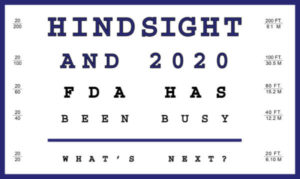I attended a meeting with FDA staff from the Denver District Office in November of 2014. The meeting was an annual update from FDA addressed to the members of the Rocky Mountain Regulatory Affairs Society. Since most of the members work with medical devices, the speakers from FDA focused on that industry sector and in particular talked about Purchasing Control Regulations since failure to comply with them results in a large number of failed inspections, warning letters and product recalls each year. The term “Purchasing Controls” is only used in the regulations for medical devices but the language of these regulations are informative for dietary supplement, food and cosmetic companies as well.
The regulations covering good manufacturing practices (GMPs) for dietary supplements commonly use the phrase, “ensure that the [product, components, labels and packaging] are consistent with your purchase order”. The GMP regulations for foods and the GMP guidance for cosmetics both refer to specifications for ingredients. Since it is impossible to consistently make quality products unless you have ingredients of consistent quality, it is imperative that your purchasing department have detailed information about the requirements for each ingredient or component used in your product. In other words, purchasing needs detailed ingredient/component specifications.
21 CFR 820.50(b) states, “Each manufacturer shall establish and maintain data that clearly describe or reference the specified requirements, including quality requirements, for purchased or otherwise received product and services…”
21 CFR 820.50(b) continues, “Purchasing documents shall include, where possible, an agreement that the suppliers, contractors, and consultants agree to notify the manufacturer of changes in the product or service so that manufacturers may determine whether the changes may affect the quality of a finished device.”




